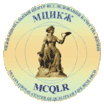T. I. Ionova., D.A. Fedorenko, T. P. Nikitina, K. A. Kurbatova, I. S.Bazin, A. V. Belonogov, G. P. Kolesnikov, M. V. Panina, P. S. Borisov
Changes of symptoms related with hand-foot syndrome in patients with solid tumors receiving antitumor therapy with or without using the new antioxidant-containing topical formulation Elima®
Dermatological chemotherapy side effects, especially Hand and Foot Syndrome (HFS), are frequent in cancer patients receiving antitumor therapy, and have a negative impact on quality of life (QoL) and thus it may result to stop the anticancer therapy. Until now no medications have been established as standard therapy of HFS. The only one therapy has the evidence-based clinical effectiveness of HFS reduction is the new antioxidant-containing topical formulation (elima®).
The aim of this study was to investigate if the elima® is effective for HFS treatment in cancer patients from the patient's perspective. 59 cancer patients receiving antitumor therapy with developed HFS, WHO grades I-III were included in multicenter observational QoL study (mean age 62.4±10; male/female – 21/38). All the patients received HFS treatment using elima (n=30) or moisturizing skin care agent containing vitamin F – SC-F (n=29) twice a day.
The patients filled out the Comprehensive Symptom Profile in Patients with HFS questionnaire (CSP-HFS) before and 9-10 weeks after HFS treatment start. Treatment groups were similar by gender, age and WHO grades. Statistical analysis was made using t-test and general liner model with adjustment for HFS grade and base line symptom severity.
HFS improvement was more pronounced in patients on elima versus on SC-F: severity of all symptoms according to the CSP-HFS decreased significantly on elima (ES=0.25–0.97) as compared with slight severity reduction of 9 symptoms (ES=0.2–0.73) and itching worsening on SC-F (p<0.01). Total symptom severity reduction was more explicit on elima than on SC-F (?22.5 vs ?13.9, ES=0.38).
The study shows that elima is an effective treatment for HFS from patient's perspective and is superior to generally accepted treatment with SC-F. Patient-reported outcomes assessment may be of great value to enhance control of skin toxicity in cancer patients receiving antitumor therapy.
| 




